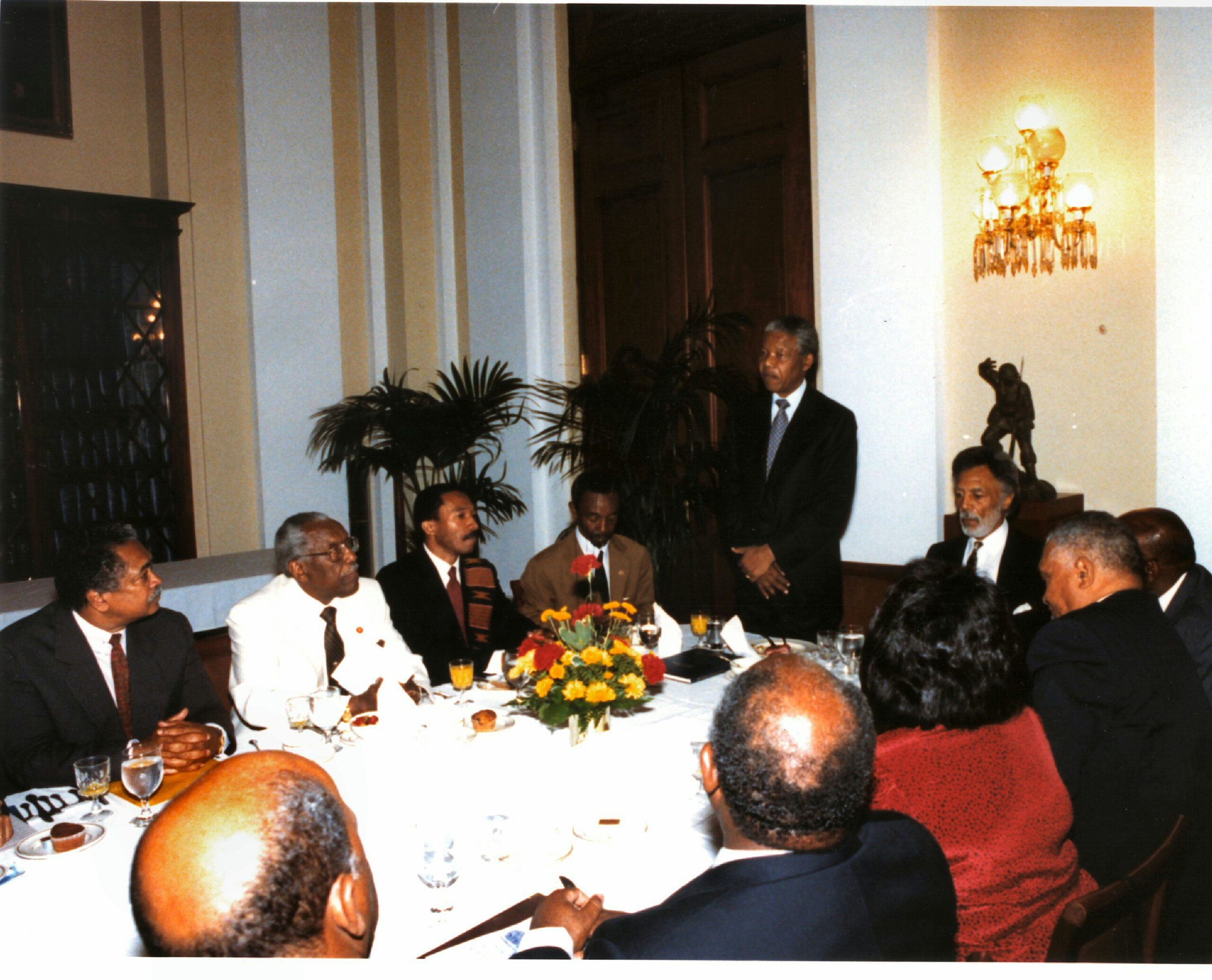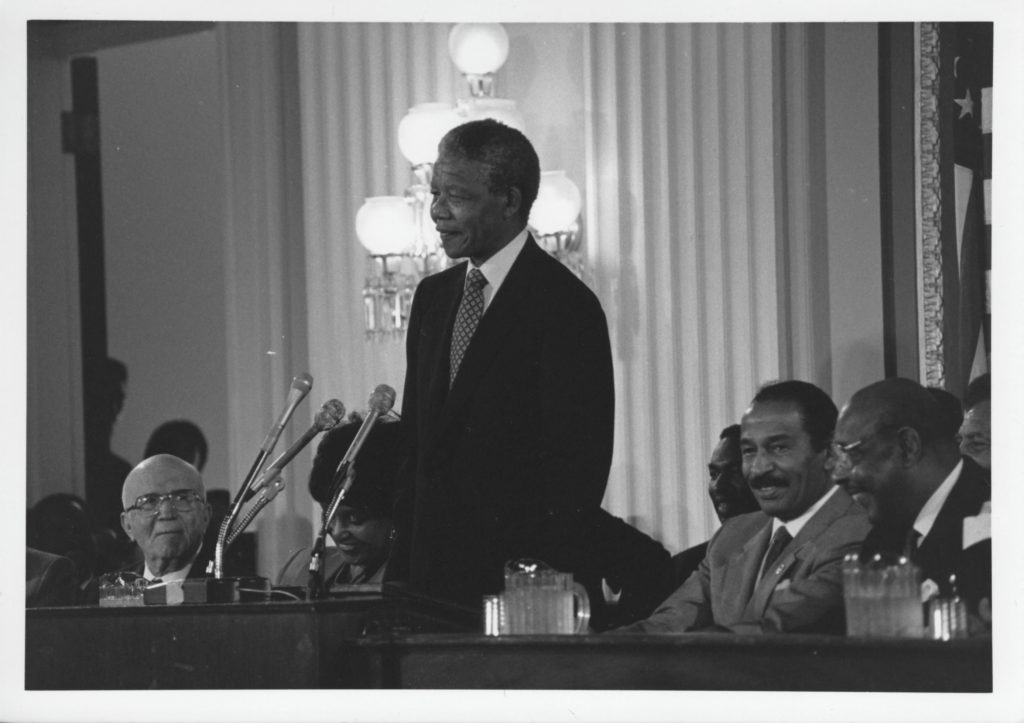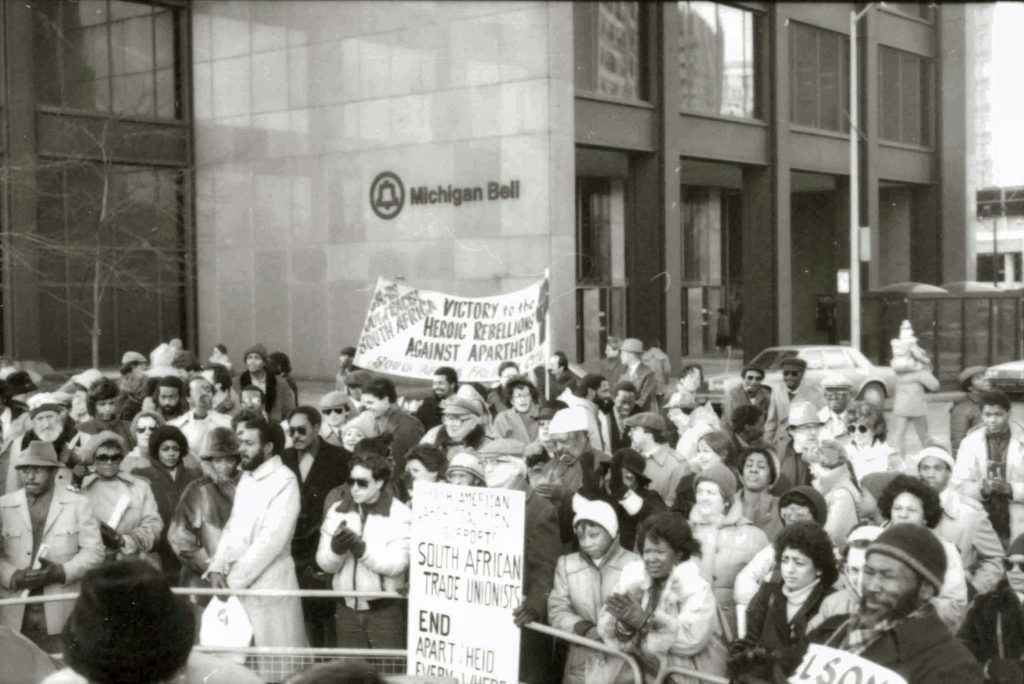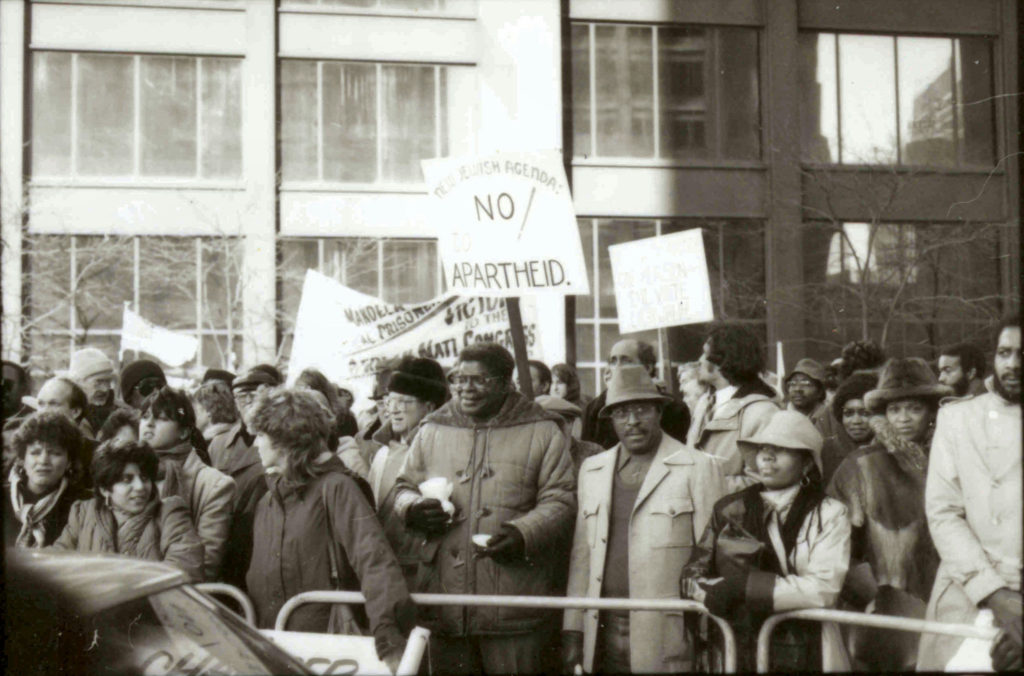Anti-Apartheid Movement: Public Advocacy
Read about the important role of CBC members in dismantling the apartheid system of South Africa.

CBC Members with Nelson Mandela
The anti-apartheid movement was spearheaded by the black community in the United States. As leaders of this community, the Congressional Black Caucus was instrumental in organizing and supporting activities that brought national and global attention to the racist and inhumane treatment of blacks in South Africa. The CBC’s efforts to raise awareness about South Africa’s apartheid system ultimately led to the passage of the Comprehensive Anti-Apartheid Act of 1986.
Prior to 1986, CBC members, along with students and other community activists, brought widespread attention to South Africa through a number of rallies and protests in Washington, D.C. and their home districts. The CBC was also involved in the establishment of TransAfrica in 1977. TransAfrica is a foreign policy advocacy organization designed to force attention on issues concerning Africa and the Caribbean. TransAfrica, with the support of the CBC and several other grassroots organizations, led the movement to divest in South Africa. As a result of these efforts, scores of universities and businesses withdrew investment dollars from South Africa.
In Congress, CBC members participated in hearings within the Sub-Committee on Africa in order to bring national attention to the atrocities of apartheid in South Africa. They introduced sanctions against the South African government aimed at making the government accountable for its racially-unjust policies towards blacks. These actions led to the Comprehensive Anti-Apartheid Act of 1986, which called for a trade embargo against South Africa and the immediate divestment of American corporations and stated preconditions for lifting the sanctions. These preconditions included the release of all political prisoners.
The work of the CBC was also highly influential in the global community. The anti-apartheid movement in the United States triggered sanctions in Europe and Japan and the loss of confidence by the global banking community in the economy of South Africa.
Less than five years after the passage of the Comprehensive Anti-Apartheid Act of 1986, the world witnessed the dismantling of apartheid laws and the release of political prisoners such as Nelson Mandela.



